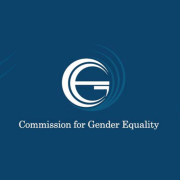|
Getting your Trinity Audio player ready...
|
Image: Flickr/UN Women
The 11th session of the Africa Regional Forum on Sustainable Development (ARFSD-11) is taking place this week in Kampala, Uganda. The theme is Driving job creation and economic growth through sustainable, inclusive, science-based and evidence-based solutions for the 2030 Agenda for Sustainable Development and Agenda 2063: The Africa We Want, of the African Union.
On 8 April 2025 Transparency International (TI) held a side event to this important gathering, under the theme of Breaking corruption barriers to gender equality and inclusion in public service delivery in Africa – A multi-stakeholder approach.
“Corruption undermines sustainable development and the fulfilment of human rights and basic needs with a disproportionate impact on marginalised populations,” said the global anti-corruption watchdog. “From bribery and favouritism to conflict of interest and sexual corruption, corruption is a major barrier to access to basic services such as education and healthcare particularly for women, girls and other groups at risk of discrimination.”
The side event therefore sought to highlight corruption barriers to gender equality and inclusion in public service delivery in the education, health, and land sectors by sharing experiences from selected African countries and suggesting workable strategies to place anti-corruption activity in the mainstream. It also aimed to suggest solutions to ensure that corruption does not impede the achievement of the Sustainable Development Goals in general and particularly numbers 1 (no poverty), 3 (good health and well-being), 4 (quality education), 5 (gender equality), and 16 (peace, justice, and strong institutions), as well as the corresponding aspirations and goals of Agenda 2063.
Participants included Mary Awelana Addah, executive director of TI chapter Ghana Integrity Initiative, Daniel Amufo of Ghana’s National Development Planning Commission, Frances Birungi, executive director of the Uganda Community Based Association for Women and Children’s Welfare, Irene Nafungo of Uganda’s Equal Opportunities Commission, Julie Juma, the Africa programme manager for the Global Campaign for Education, and TI’s Africa regional advisor Samuel Kaninda.
Gender disparities
Women, girls, and vulnerable or marginalised groups still face major challenges in the realisation of their human rights. Globally, corruption impedes equal access to essential services, rendering the provision of education or health care inadequate or entirely absent, said TI in its most recent report, Barriers to basics: Corruption and discrimination in education and health services, published in April 2025. Victims of such corruption pay a huge cost – corruption in the education sector tends to increase school dropout rates and poverty levels, while reducing public trust. In the health sector, says TI, corruption has been found to increase child mortality and lower life expectancy and can lead to a loss of confidence in health services, prompting people, dangerously, to avoid formal healthcare altogether.
For instance, said Kaninda, girls in sub-Saharan Africa face lower education completion rates – 46% for lower education and 27% for secondary education – while just 21 countries can report any meaningful improvement in women’s land rights, 30 years after the Beijing Declaration and Platform for Action, a global agenda for women’s empowerment and gender equality which was adopted in 1995 by 189 countries.
“TI’s research shows that corruption is indeed a major barrier to access of basic services, particularly for women and girls,” he said. “And it usually takes the form of bribery, favouritism, conflict of interest, or sextortion, which is one of the most prevalent forms of sexual corruption.”
Our work as Corruption Watch (CW) has on numerous occasions shone the spotlight on sexual corruption. Our 2022 report Sound the Alarm focused on corruption in education, specifically in primary and secondary schools, SETAs, and technical, vocational, education and training colleges. We found that employment irregularities, which include sexual corruption, bribery for jobs, and flouting of recruitment processes, counts for 12.1% of all reports received during the (at that time) 10 years of CW’s existence.
Our Youth Perceptions Survey from 2020 specifically asked respondents about their experiences regarding sexual corruption, among others. A disturbing 31% of our young participants said they had been asked for sexual favours, most commonly to get a job, and most of this percentage hailed from Gauteng. We also found that people identifying as females and gender non-conforming were 50% more likely to be asked for a sexual favour in exchange for a job, financial resources, or improved marks at school or university.
“Notably, despite gender non-conforming people making up just 1% of the entire surveyed sample, they were three times more likely to be asked for a sexual favour when faced with the possibility of being arrested for a misdemeanour they had committed.”
South Africa’s youth population, mostly unemployed and looking for work, are extremely vulnerable to corruption and are regularly asked to pay – for jobs, in education, and for access to financial resources – with their bodies and dignity for access to opportunities for economic growth.
Similar situations across Africa
Participants at the TI side event shared their similar experiences.
TI Ghana’s Addah said that country’s education system is also struggling with corruption, explaining that one problem arises when newly recruited teachers must be added to a payroll, in that bureaucratic delays have led to officials demanding favours to facilitate the process. “People must agree either to work for six months without pay, or to forfeit about half of the pay when it comes for somebody to facilitate that process.”
Other issues include absenteeism, where teachers are getting paid but not working their required hours, teachers collecting the fees instead of admin staff, parents being wrongly charged for extra classes, and teachers selling books and other teaching and learning materials in the schools.
In terms of gender-related corruption, this problem disproportionately affects women as primary caregivers because they are the first point of contact when it comes to the procurement of services, said Addah. “In the health sector, they are the ones who send their children to the hospital when they are sick or they need access to health care. If it is pregnancy care, it is women who do that.”
She highlighted the practice of charging extra, unnecessary service fees – “Women are those who are actually paying the little fees and little extortions that go on and that means that much of their income, the actual income they have at hand, is used to pay these little service fees which are illegal. And then without it, it means they do not get these services.”
Furthermore, she said, the country’s primary health insurance programme is “riddled with kickbacks and corruption where National Health Insurance Scheme officials are demanding and receiving payments from providers to facilitate the services”.
She recommended gender-based budgeting, effective implementation of Ghana’s new affirmative action law, and the creation of inclusive platforms for women. Proper budgeting will ensure that financial resources are allocated in a way that addresses the specific needs and challenges faced by women and girls, promoting gender equality, she said. “The affirmative action law aims to enhance women’s representation and participation in decision-making processes, leading to more equitable policies and programs. Creating inclusive platforms for women encourages dialogue and collaboration among stakeholders, empowering women to voice their concerns and hold leaders accountable for issues affecting them.”
Land corruption and women
The conversation turned to land corruption as Birungi described the uphill battle women face in accessing land in Uganda.
“Many families, especially women, depend on land to raise income, to sustain their livelihoods for their food security needs. Also, we know that when women have ownership and control over land, they are able to generate income, that many times women plow back into their family needs, like in health, in education.”
But corruption creates barriers for these women, hindering their efforts to support their families. They struggle with corruption in land registration, access to justice, and land information, and face corruption even at family or community level in matters of inheriting land.
“Corruption … has deepened the challenges that women already face culturally and socially in terms of their ability to own, to access, and to make decisions on land. If women are not able to access land, if they are not able to access resources, they are tied into poverty, not able to access health and education services for themselves and for their children. They are made more vulnerable.”
As a result, Birungi added, the country is seeing very limited progress in terms of women’s ability to be empowered, mainly around the basic resource of land, but also cutting across to other sectors.
As a potential remedy, she pointed out the importance of collective action through community organising, where women are given enough knowledge about rights and budgets to enable them to demand accountability, and where they have a platform for engagement with duty bearers. Such strengthened community structures will facilitate the monitoring of budgets and reporting of corruption.
Barrier to education
Juma also highlighted corruption as a barrier to education access across Africa.
Corruption in education systems leads to unequal access to quality education, disproportionately affecting girls and marginalised groups, she said, while financial mismanagement and bribery in schools result in increased dropout rates and hinder educational attainment for vulnerable populations.
“Without an education that teaches equality,” she said, “girls will always believe that they are less than their brothers. Being in schools is particularly critical for girls who are at risk of early and forced marriages and unions and female genital cutting or mutilation.”
Those safe spaces play a life-saving role in times of crisis and disaster, she said. “Physically accessing safe schools become more difficult, especially for girls, children with disabilities, and children from minority communities. And issues of corruption also take place during emergencies and conflicts for women and girls to access provisions. Some of them are asked to sleep with those people who are providing these necessities. It affects their education because as a result we end up losing some of the girls.”
Efforts to address these issues will require collaborative approaches involving governments, civil society, and communities, to ensure accountability and equitable resource allocation.
She recommended sealing corruption loopholes to enhance transparency and accountability in public financial management and ensure that funds are used for their intended purposes.
She also suggested that progressive taxation – where governments ask more tax from those who earn more, and multinational corporations in particular – would help redistribute wealth and increase government revenue, allowing for greater investment in essential services such as education and healthcare.
Finally, addressing illicit financial flows would free up resources for development, enabling countries to invest in infrastructure and social programs that benefit marginalised communities.
Independence from foreign aid
The volatility and uncertainty of foreign aid, especially from the US, is a current hot topic around the world.
“Aid is not sustainable,” said Juma, “It’s not something that we can rely on.”
She said that domestic resource mobilisation is a more sustainable solution, as it enables countries to generate their own revenue and reduce dependency on external aid. It also fosters greater accountability and transparency in government spending, as citizens can demand better services when they see their taxes being used effectively.
Investing in local economies through domestic resource mobilisation, Juma added, can lead to sustainable development, job creation, and improved public services without relying on fluctuating international aid.








